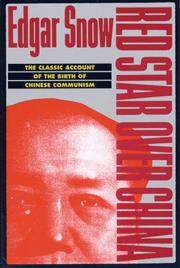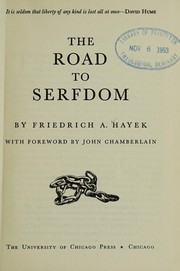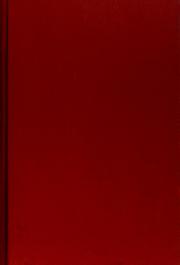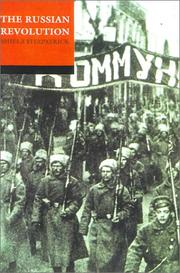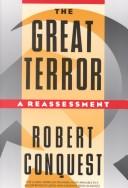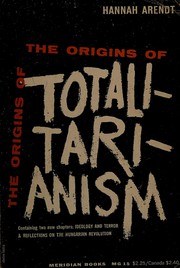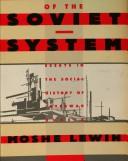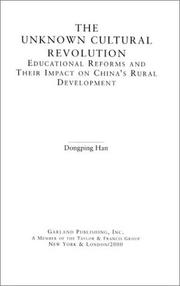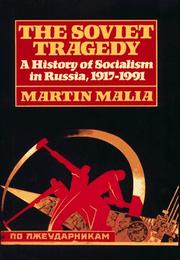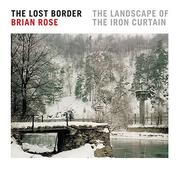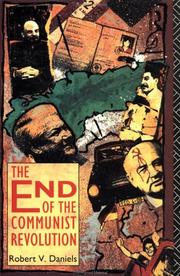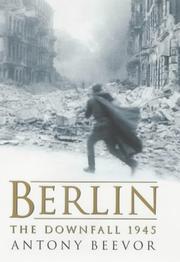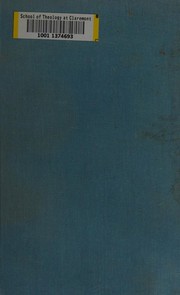Are you fascinated by the history and ideologies of communism? Look no further than this curated list of the 20 best books about communism. From classics to contemporary works, these books offer deep insights into the theory, practice, and impact of communism around the world. Whether you’re a student of history, a political enthusiast, or simply curious about this influential ideology, there’s a book on communism waiting to broaden your understanding. Dive into these communism books and enrich your knowledge today!
Contents
- 1 20 Best Books About Communism
- 2 The Communist Manifesto
- 3 The Gulag Archipelago
- 4 Red Star Over China
- 5 The Road to Serfdom
- 6 Mao: The Unknown Story
- 7 Iron Curtain: The Crushing of Eastern Europe 1944-1956
- 8 The Russian Revolution
- 9 The Great Terror: A Reassessment
- 10 The Cultural Revolution: A People’s History, 1962-1976
- 11 The Origins of Totalitarianism
- 12 The Making of the Soviet System: Essays in the Social History of Interwar Russia
- 13 The Rise and Fall of Communism
- 14 The Unknown Cultural Revolution: Life and Change in a Chinese Village
- 15 The Soviet Tragedy: A History of Socialism in Russia, 1917-1991
- 16 The Lost Border: The Landscape of the Iron Curtain
- 17 The Communist Hypothesis
- 18 The End of the Communist Revolution
- 19 The Last Man in Russia: The Struggle to Save a Dying Nation
- 20 The Fall of Berlin 1945
- 21 Capital, Volume I
- 22 Conclusion
- 23
- 24 Explore 20 Best Abortion Rights Books with Our 2024 Update
- 25 The 20 Military Intelligence Books: Best 2024 Update and Review
- 26 The 20 Abuse And Trauma Books: Best 2024 Update and Review
20 Best Books About Communism
The Communist Manifesto
by Karl Marx and Friedrich Engels
The Communist Manifesto, written by Karl Marx and Friedrich Engels, is a groundbreaking book on communism that was published in 1848. It presents a powerful critique of capitalism and calls for a revolution to overthrow the ruling class and establish a classless society. The manifesto outlines the historical development of capitalism, the exploitation of the working class, and the inevitable downfall of the capitalist system. It also lays out the principles of communism, advocating for the abolition of private property and the establishment of a society based on common ownership and equality. The Communist Manifesto has had a profound impact on political movements and ideologies around the world, and it remains a seminal work in the history of socialist thought.
The Gulag Archipelago
by Aleksandr Solzhenitsyn
The Gulag Archipelago by Aleksandr Solzhenitsyn is a harrowing account of the Soviet Union’s brutal labor camps, exposing the inhumane treatment of political prisoners under the communist regime. This powerful book on communism, written by a former prisoner, provides a chilling insight into the oppressive system of forced labor, torture, and mass executions. Solzhenitsyn’s firsthand experiences and meticulous research reveal the widespread suffering and injustices endured by countless individuals throughout the Soviet Union. Through vivid storytelling and unflinching honesty, the author sheds light on the dark and destructive nature of communism, making this a crucial read for anyone seeking to understand the atrocities committed under the guise of ideology. The Gulag Archipelago is an essential book about communism that serves as a stark reminder of the dangers of unchecked power and the resilience of the human spirit in the face of oppression.
Red Star Over China
by Edgar Snow
Red Star Over China is a groundbreaking book on communism, written by Edgar Snow. This captivating and meticulously researched work provides an intimate portrayal of the early days of the Chinese Communist Party. Snow’s firsthand accounts and interviews with key figures such as Mao Zedong offer a unique insight into the origins and growth of the party, as well as its ideology and objectives. Through vivid storytelling and a keen eye for detail, Snow brings to life the struggles, triumphs, and complexities of the communist movement in China. Red Star Over China is not just a book about communism; it is a compelling narrative that sheds light on a pivotal period in Chinese history and the global spread of communist ideals. Readers will be immersed in a world of revolution, political upheaval, and the relentless pursuit of social change.
The Road to Serfdom
by Friedrich Hayek
The Road to Serfdom is a classic book on communism by Friedrich Hayek, a renowned economist and philosopher. In this influential work, Hayek argues that central planning and government control of the economy inevitably lead to totalitarianism and the loss of individual freedoms. He warns against the dangers of collectivism and the erosion of personal liberty in the pursuit of equality. Hayek’s insightful analysis and persuasive arguments have made this book a timeless and essential read for anyone interested in understanding the perils of excessive government intervention in the economy and the threats posed by communism. The Road to Serfdom remains a powerful and relevant critique of the dangers of socialism and a compelling defense of free markets and individual liberty.
Mao: The Unknown Story
by Jung Chang and Jon Halliday
Mao: The Unknown Story is a gripping biography that unveils the true nature of one of the most controversial figures in modern history. Written by Jung Chang and Jon Halliday, this book delves deep into the life of Mao Zedong, providing a comprehensive account of his rise to power and the devastating impact of his rule. Through meticulous research and compelling storytelling, the authors shed light on Mao’s ruthless pursuit of power, his brutal tactics, and the atrocities committed during his reign. This book is essential reading for anyone seeking to understand the complexities of totalitarianism and the dark side of political ideology. Mao: The Unknown Story is a powerful and revealing exploration of one man’s impact on a nation and the world, making it a must-read for those interested in the history of communism.
Iron Curtain: The Crushing of Eastern Europe 1944-1956
by Anne Applebaum
Iron Curtain: The Crushing of Eastern Europe 1944-1956 by Anne Applebaum is a compelling and meticulously researched book on communism. Applebaum delves into the post-World War II era, examining the Soviet Union’s domination of Eastern Europe and the subsequent establishment of communist regimes in countries such as Poland, Hungary, and Czechoslovakia. Through extensive archival research and firsthand accounts, she vividly portrays the harsh realities of life under communist rule, including political repression, economic hardship, and social upheaval. The book provides a comprehensive analysis of the methods used by the Soviet Union to maintain control over these countries, as well as the resistance and uprisings that emerged in response. Iron Curtain is a thought-provoking and illuminating exploration of this tumultuous period in history, shedding light on the lasting impact of communism on Eastern Europe.
The Russian Revolution
by Sheila Fitzpatrick
The Russian Revolution by Sheila Fitzpatrick is a captivating exploration of the tumultuous events that led to the rise of the Soviet Union. This compelling book delves into the complex political and social dynamics of the time, offering readers a comprehensive understanding of the revolution’s impact on Russian society. Fitzpatrick’s meticulous research and engaging writing style make this book a must-read for anyone interested in the history of communism. Through a vivid portrayal of the key figures and pivotal moments of the revolution, the author provides a nuanced perspective on the ideological struggle and the quest for power that shaped the course of Russian history. The Russian Revolution is a thought-provoking and illuminating account of a pivotal period in world history, making it an essential read for those intrigued by the dynamics of revolutionary movements and the enduring legacy of communism.
The Great Terror: A Reassessment
by Robert Conquest
The Great Terror: A Reassessment by Robert Conquest is a chilling and thorough exploration of the Stalinist regime’s reign of terror in the Soviet Union. This groundbreaking book on communism offers a harrowing account of the purges, show trials, and mass executions that characterized this dark period in history. Conquest’s meticulous research and compelling narrative shed light on the extent of the atrocities committed under Stalin’s rule, providing a sobering reminder of the human cost of totalitarianism. This communism book is a must-read for anyone interested in understanding the depths of the Great Terror and its impact on Soviet society. Through Conquest’s insightful analysis, readers gain a deeper understanding of the complexities of power, fear, and oppression in the context of a totalitarian regime.
The Cultural Revolution: A People’s History, 1962-1976
by Frank Dikötter
The Cultural Revolution: A People’s History, 1962-1976 by Frank Dikötter is a gripping book about communism that offers a comprehensive account of one of the most tumultuous periods in Chinese history. Dikötter delves into the personal stories of individuals who lived through the Cultural Revolution, providing a vivid portrayal of the social upheaval, political turmoil, and ideological fervor that characterized this era. The author skillfully weaves together historical analysis and first-hand accounts to paint a compelling picture of how communism shaped the lives of ordinary people in China. Through meticulous research and compelling storytelling, Dikötter offers a thought-provoking exploration of the impact of communism on society and culture during this tumultuous period. This book on communism is a must-read for anyone interested in understanding the complexities of Chinese history and the lasting effects of communism.
The Origins of Totalitarianism
by Hannah Arendt
The Origins of Totalitarianism by Hannah Arendt is a groundbreaking book on communism, totalitarianism, and the rise of dictatorships in the 20th century. Arendt explores the historical, political, and social factors that led to the emergence of totalitarian regimes in Europe, focusing on the ideologies of Nazism and Stalinism. She delves into the impact of imperialism, racism, and anti-Semitism, and the erosion of individual rights and freedoms. Arendt’s analysis offers a deep understanding of the dangers of authoritarianism and the manipulation of mass politics. Her insights remain relevant today, making this book about communism a must-read for anyone interested in understanding the complexities of power, ideology, and the human condition.
The Making of the Soviet System: Essays in the Social History of Interwar Russia
by Moshe Lewin
The Making of the Soviet System: Essays in the Social History of Interwar Russia by Moshe Lewin is a fascinating book about communism that delves into the social history of interwar Russia. Lewin’s insightful essays offer a comprehensive overview of the communism book and its development during this crucial period. He explores the various social, economic, and political factors that shaped the Soviet system, providing a rich and nuanced analysis of the era. Lewin’s work is a valuable resource for anyone interested in understanding the complexities of the Soviet Union’s formation and the impact it had on Russian society. The book on communism is a must-read for historians, scholars, and anyone curious about this pivotal moment in Russian history.
The Rise and Fall of Communism
by Archie Brown
The Rise and Fall of Communism by Archie Brown is a comprehensive and insightful book on the history and impact of the communist ideology. Brown traces the origins of communism, its rise to power in various countries, and its eventual decline and fall. Through in-depth analysis and engaging storytelling, the book explores the key figures, events, and ideologies that shaped the communist movement. Brown also examines the impact of communism on global politics, economics, and society, providing a nuanced understanding of its legacy. This compelling and well-researched book about communism is a must-read for anyone interested in understanding the complex and influential history of this political system. Whether you’re a history enthusiast or a political science student, The Rise and Fall of Communism offers a fascinating exploration of one of the most significant movements in modern history.
The Unknown Cultural Revolution: Life and Change in a Chinese Village
by Dongping Han
The Unknown Cultural Revolution: Life and Change in a Chinese Village by Dongping Han is a compelling book about communism. Han, a former Red Guard during China’s Cultural Revolution, offers a unique perspective on this tumultuous period in Chinese history. Through personal anecdotes and extensive research, Han provides a vivid portrayal of the impact of Mao’s policies on rural communities. The book delves into the struggles, sacrifices, and transformations experienced by the villagers, shedding light on a lesser-known aspect of the Cultural Revolution. Han’s narrative challenges conventional Western perceptions of this period and offers a thought-provoking exploration of the complexities of communism. The Unknown Cultural Revolution is a must-read for anyone interested in understanding the human experience within a communism book.
The Soviet Tragedy: A History of Socialism in Russia, 1917-1991
by Martin Malia
The Soviet Tragedy by Martin Malia is a comprehensive book about communism in Russia, offering a detailed history of socialism in the country from 1917 to 1991. Malia provides a gripping account of the rise and fall of the Soviet Union, delving into the political, economic, and social factors that shaped this tumultuous period. The book explores the complexities of Soviet ideology, the impact of leaders like Lenin and Stalin, and the eventual collapse of the communist regime. Malia’s engaging narrative style and in-depth analysis make this book on communism a must-read for anyone interested in understanding the history and consequences of the Soviet experiment. Whether you’re a history buff or simply curious about the legacy of communism, The Soviet Tragedy offers a compelling and illuminating exploration of a pivotal era in Russian and world history.
The Lost Border: The Landscape of the Iron Curtain
by Brian Rose
The Lost Border: The Landscape of the Iron Curtain by Brian Rose is a captivating exploration of the physical and emotional impact of the Iron Curtain, the barrier that divided Europe during the Cold War. Through his stunning photography and insightful commentary, Rose provides a unique perspective on the landscapes and architecture that were shaped by the political ideology of the time. This book offers a thought-provoking look at the legacy of the Iron Curtain, shedding light on the human experience and the lasting effects of communism. With its powerful imagery and rich historical context, The Lost Border offers a compelling narrative that will appeal to anyone interested in the history of the Cold War and its impact on the physical environment.
The Communist Hypothesis
by Alain Badiou
The Communist Hypothesis by Alain Badiou is a thought-provoking book on communism that challenges readers to reconsider the potential of this political ideology. Badiou presents a bold and provocative argument for the relevance of communism in today’s society, exploring its historical significance and potential for the future. Through careful analysis and philosophical insight, he questions the traditional understanding of communism and offers a new perspective on its possibilities. The book delves into the core principles of communism, addressing its potential as a transformative force for society. Badiou’s compelling exploration of the communist hypothesis is sure to ignite critical thinking and inspire readers to reconsider their perceptions of this controversial ideology.
The End of the Communist Revolution
by Robert V. Daniels
The End of the Communist Revolution by Robert V. Daniels is a compelling book on communism that examines the collapse of the Soviet Union and the end of the communist era. Daniels provides a thorough analysis of the internal and external factors that led to the downfall of the communist regimes in Eastern Europe and the Soviet Union. Through meticulous research and insightful commentary, the author delves into the political, economic, and social dynamics that shaped the communist revolution and ultimately contributed to its demise. With a balanced and nuanced approach, Daniels offers a comprehensive understanding of this pivotal moment in history. This book about communism is a must-read for anyone interested in the complexities of the Cold War and the profound impact of the communist revolution on the modern world.
The Last Man in Russia: The Struggle to Save a Dying Nation
by Oliver Bullough
The Last Man in Russia: The Struggle to Save a Dying Nation by Oliver Bullough is a gripping and insightful exploration of the impact of the collapse of the Soviet Union on the Russian people. Bullough’s book delves into the turbulent aftermath of the dissolution of the USSR, painting a vivid picture of the struggles and challenges faced by the Russian population as they grapple with the legacy of communism. Through in-depth interviews and personal stories, Bullough captures the resilience and tenacity of the Russian people in the face of economic hardship, political upheaval, and social disintegration. This poignant and thought-provoking book offers a compelling look at the enduring effects of the communist regime and the ongoing quest for survival and hope in a rapidly changing world.
The Fall of Berlin 1945
by Antony Beevor
The Fall of Berlin 1945 by Antony Beevor is a gripping account of the final months of World War II and the brutal battle for Berlin. Beevor’s vivid and detailed narrative chronicles the Soviet advance on the German capital, the intense street fighting, and the eventual fall of the city to the Red Army. This book provides a harrowing insight into the horrors of war, the suffering of civilians, and the ruthlessness of both the Nazi regime and the Soviet forces. With a focus on the human experience, Beevor brings to life the individual stories of soldiers and civilians caught in the chaos of war. The Fall of Berlin 1945 is a must-read for anyone interested in the history of World War II, the Soviet Union, or the impact of communism on Europe.
Capital, Volume I
by Karl Marx
Capital, Volume I by Karl Marx is a groundbreaking book on communism that delves deep into the complexities of capitalism and its effects on society. With a meticulous analysis of the economic system, Marx explores the exploitation of labor, the accumulation of wealth, and the power dynamics at play. Through his critical lens, he uncovers the inherent contradictions of capitalism and its tendency to perpetuate inequality. This book about communism presents a compelling argument for the need to overthrow the capitalist system and establish a more equitable society. Marx’s powerful critique of capitalism and his vision for a classless society make Capital, Volume I a seminal communism book that continues to inspire and provoke thought.
Conclusion
Exploring the complex and often controversial history of Communism through literature can provide valuable insights into this influential ideology. The books about communism featured in this list offer diverse perspectives and deep analysis, making them essential reads for anyone seeking to understand the impact of communism on the world. Whether you’re a history enthusiast, a political science student, or simply curious about this pivotal era, these books have the power to inform and provoke thoughtful discourse. Dive into these compelling narratives and gain a deeper understanding of the forces that have shaped our modern world.
Which Communism book is best?
The best book on Communism can vary with personal preference, but three widely recommended titles are:
- The Communist Manifesto by Karl Marx and Friedrich Engels,
- The Gulag Archipelago by Aleksandr Solzhenitsyn,
- Red Star Over China by Edgar Snow.
Each offers valuable insights and could be a great starting point.
What are the best books to learn about Communism?
For those looking to learn about Communism, there is a wealth of literature that can provide a comprehensive understanding of the subject. Some of the most highly recommended books include:
- The Communist Manifesto by Karl Marx and Friedrich Engels,
- The Gulag Archipelago by Aleksandr Solzhenitsyn,
- Red Star Over China by Edgar Snow,
- The Road to Serfdom by Friedrich Hayek,
- Mao: The Unknown Story by Jung Chang and Jon Halliday,
- Iron Curtain: The Crushing of Eastern Europe 1944-1956 by Anne Applebaum,
- The Russian Revolution by Sheila Fitzpatrick,
- The Great Terror: A Reassessment by Robert Conquest,
- The Cultural Revolution: A People’s History, 1962-1976 by Frank Dikötter,
- The Origins of Totalitarianism by Hannah Arendt
These books offer a range of perspectives on Communism, covering various aspects and approaches to the subject.
What are the best books on Communism?
The best books on Communism include:
- The Communist Manifesto by Karl Marx and Friedrich Engels,
- The Gulag Archipelago by Aleksandr Solzhenitsyn,
- The Making of the Soviet System: Essays in the Social History of Interwar Russia by Moshe Lewin,
- The Rise and Fall of Communism by Archie Brown,
- The Great Terror: A Reassessment by Robert Conquest,
- Iron Curtain: The Crushing of Eastern Europe 1944-1956 by Anne Applebaum.
Each offers unique insights into the subject. While these books on the topic of Communism are highly regarded, it’s important to note that any list of ‘best’ books is subjective and reflects a range of opinions.
What are the best Communism books of all time?
Choosing the best Communism books of all time can vary depending on who you ask, but seven titles that are often celebrated include
- The Communist Manifesto by Karl Marx and Friedrich Engels,
- The Gulag Archipelago by Aleksandr Solzhenitsyn,
- Mao: The Unknown Story by Jung Chang and Jon Halliday,
- The Great Terror: A Reassessment by Robert Conquest,
- The Origins of Totalitarianism by Hannah Arendt,
- The Rise and Fall of Communism by Archie Brown,
- and The Making of the Soviet System: Essays in the Social History of Interwar Russia by Moshe Lewin.
Each of these books has made a significant impact in the field of Communism and continues to be influential today.



